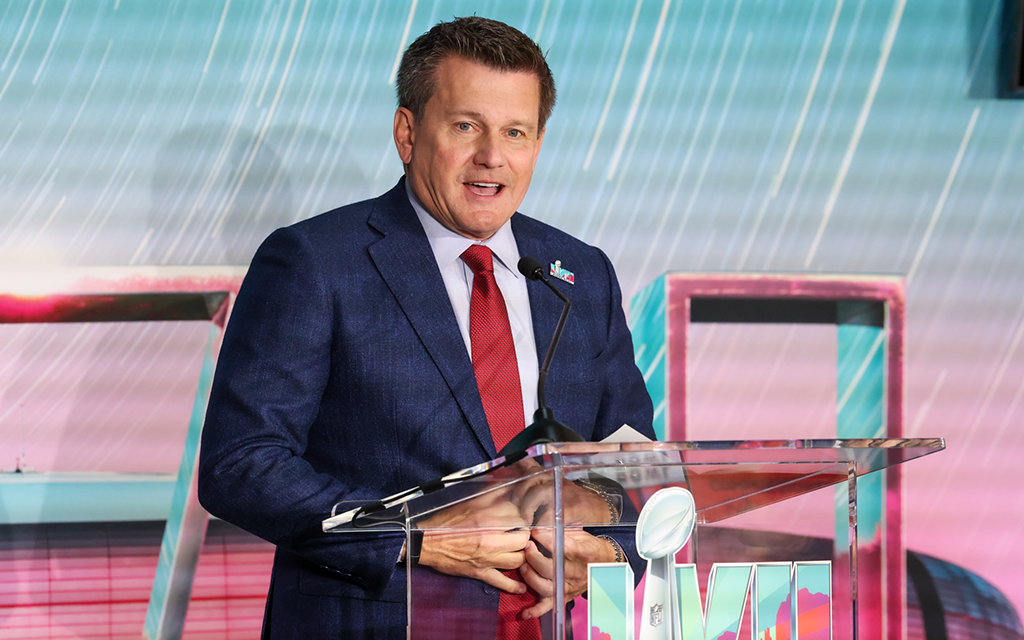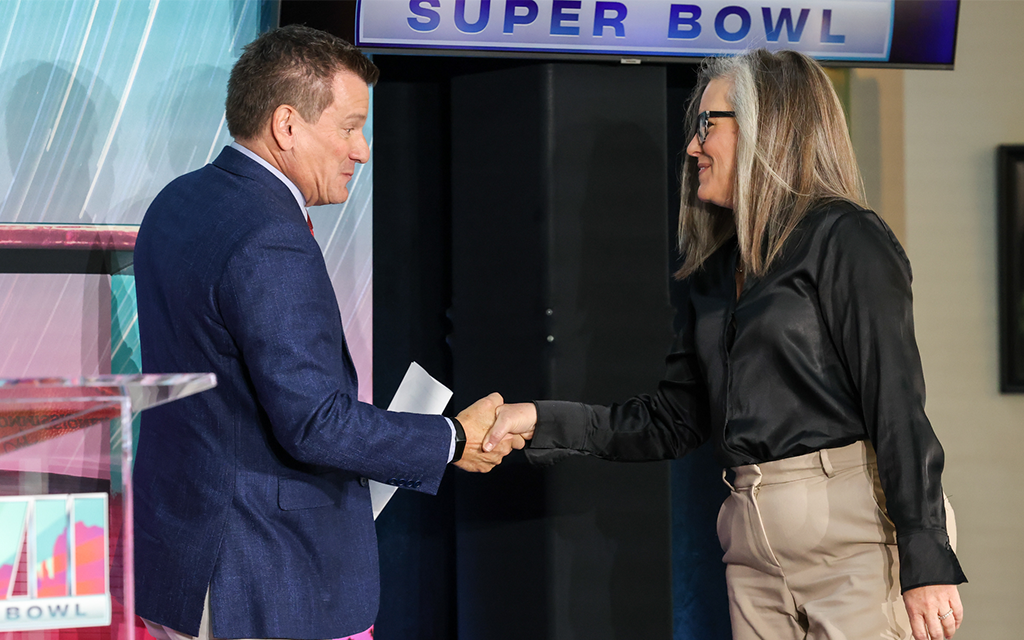PHOENIX – The 2023 Super Bowl was a legacy win for MVP Patrick Mahomes and the Kansas City Chiefs – and, according to ASU’s L. William Seidman Institute, a massive economic win for the Valley.
Arizona Super Bowl Host Committee Board Chair David Rousseau announced Wednesday that the event generated $1.3 billion in economic activity in the region, up 40% from 2015, the last time Glendale’s State Farm Stadium hosted the event.
Of that $1.3 billion, $726 million contributed to the Arizona Gross Domestic Product. Lisa Urias, the CEO of the Arizona Office of Tourism, said visitors to Arizona contributed $221 million in direct spending, including $91 million in revenue to Valley hotels, a 184% increase over the same period in 2022.
Arizona Governor Katie Hobbs said the Valley is ready to continue hosting big events.
“I know I’m not alone in saying that Arizona is ready and willing to host many more Super Bowls to come,” Hobbs said. “For now, we’re excited for the next big sports event coming to Arizona: the NCAA Men’s Final Four in April, which I’m confident will be another major success for our state.”
Program comes under fire
Rousseau said the $1.3 billion is from the “tsunami” of economic activity created around the time of the game.
A “river” of economic benefits awaits the city, said Arizona Cardinals owner Michael Bidwill, who touted the benefits of a program to woo companies and its CEOs to the state from 2015, the last time Arizona hosted the Super Bowl.
“We’ve created this really unique program that creates a river of economic benefits, and that’s a little bit of our secret sauce,” Bidwill said.

Cardinals owner Michael Bidwill said the 2023 Business Connect program, which aimed to create opportunities for minority, women, LGBTQ+ and veteran-owned businesses led to $11.5 million worth of opportunities. (Photo by Griffin Greenberg/Cronkite News)
Arizona Commerce Authority President and CEO Sandra Watson said the program included exclusive meetings with state leaders from government, industry and academia, as well as one-on-one meetings with Hobbs.
“We bring together decision-makers to educate them on Arizona’s value proposition as they consider competitive projects and opportunities that they are considering across the nation,” Watson said.
The program has come under fire after a report from Arizona Auditor General Lindsey Perry found the program cost the state over $2.4 million and included stays at luxury hotels and expensive gifts for prospective business leaders as well as free tickets to the game for the Governor’s staff, among other things. The Arizona Republic reported Tuesday that the Arizona attorney general’s office was investigating the matter.
Hobbs told the media after the event that the meetings were used to sell companies on “the benefit to do business in Arizona,” which includes “great proximity to two ports of entry in Mexico and California, the climate we have and the growing population and workforce.”
Question over events true impact
A Glendale city assessment in the aftermath of the 2015 Super Bowl found that the city likely lost between $579,000 and $1.2 million for hosting the event, despite a W.P. Carey School of Business study indicating $720 million in economic impact for the Phoenix metro area. Glendale Mayor Jerry Weiers also claims over $1 million in losses after Super Bowl XLII in 2008.
Rousseau, when asked whether Glendale made money on this year’s event, said he does not have “any insight.”
“I know that Glendale was thrilled with the weather and the performance and, and obviously ended up being a marquee game,” Rousseau said. “And so I think everybody was happy from that perspective. And they’ve been a great partner all the way through this game.”
The previous two Super Bowls hosted at Glendale’s State Farm Stadium? The New York Giants’ 17-14 upset win to prevent an unbeaten season from the New England Patriots, and a 28-24 Patriots victory of the Seattle Seahawks that included a game-winning interception from Patriots cornerback Malcolm Butler. Two marquee matchups, two claims of money lost.



